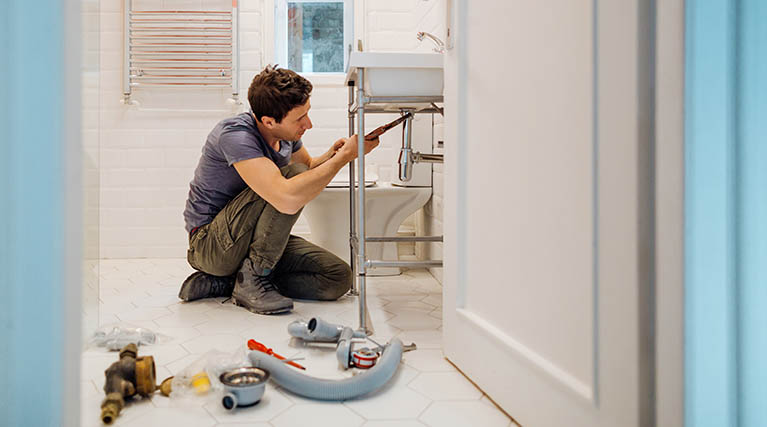A plumber is the one who installs and repairs the pipes and fittings of water supply, sanitation, or heating systems or the essential repairs. They often operate alone and may usually travel both short and large distances for their work.
They also maintain plumbing fixtures like appliances that we use in our everyday lives or in our home such as bath tubs, toilets and dishwashers. They also install toilets, sinks, bathtubs, and other similar appliances. These are just some of the things we know but there are a lot more that the can do.
The main duties of a Plumber are below.
- Traveling to properties or establishments to inspect and fix plumbing problems and plumbing system
- Providing repair estimates before doing the repairs – identifying problems, providing long-term solutions, and troubleshooting
- Planning new installations by studying and analyzing blueprints pipe installation and other related fixture installation
- Using specialized test tools to identify and resolve problems fixing a variety of plumbing-related equipment
- Tubes, pipes, fittings, and other relevant fixtures that can be cut, put together, and welded.
- Ensuring that every work complies with all laws and codes.
The duties mentioned above are just the main ones but the specific responsibilities of a Plumber mainly depend on the industry they work in and the size of the job.
Before someone can be a Plumber, there are certain requirements and skills that the job requires. Any applicant or aspiring individual must have at least a Highschool diploma or GED (General Equivalency Diploma) to start with. The GED course is an essential coursework because it includes math and communications that can be very helpful in calculating project costs and improve communication skills with clients or customers.
Second, the aspirant should be able to complete a vocational training. The aspirant may join programs or occasional classes where he can learn more about plumbing and how to use piping equipments.
Third, the aspirant needs to complete a plumbing apprenticeship. The apprenticeship provides training and learning in plumbing regulations, procedures, and expertise.
Fourth, the aspirant needs to apply for a license. Some companies or states require the plumber to be license. The license also gives assurance to the employer of the plumber’s skill level and knowledge of plumbing rules and procedures.
And lastly, the aspirant needs to get experience as much as he can. This means getting more jobs, meeting new clients and learning about the best tools and equipment to use.
Being a Plumber is an extraordinary job and plumbing services is very much needed anywhere so if you want to start your plumbing career, do it now and learn as muc as you can!
